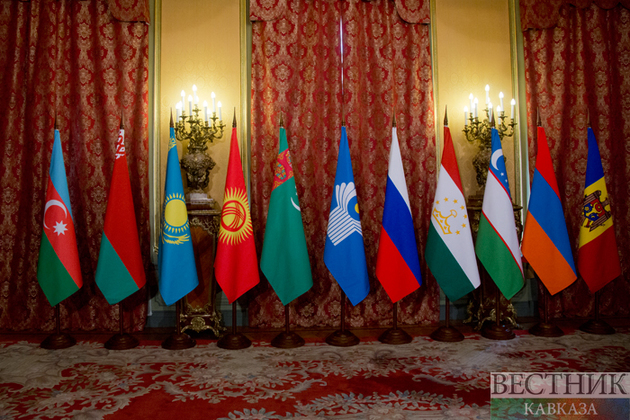On January 1, chairmanship in international organisations are usually transferred. This year, Russia will chair the BRICS and the CIS, Armenia - the EAEU, Kazakhstan - the CSTO.
Russia and BRICS
Five new members (Egypt, Iran, the UAE, Saudi Arabia and Ethiopia) formally become full-fledged members of the BRICS group, and commence joint work in that capacity, on January 1 under the chairmanship of Russia, which takes over from outgoing chair South Africa.
As Russian President Vladimir Putin has stated, during its year-long chairmanship Moscow will do everything possible to ensure that the five new BRICS members can "harmoniously integrate into the operating mode of the organization."
While preparing to take over from Pretoria as BRICS chair, Moscow has repeatedly stated that it will continue the course toward expanding the group‘s global influence. Among Moscow’s priorities will be the creation of a common trade settlement mechanism within the BRICS economies.
It is expected that Russia will continue the discussions on reaching a settlement in the Middle East that began at the extraordinary summit in November, as well as on other world issues that are traditionally discussed among the BRICS countries. Other potential topics include individual countries’ experience using artificial intelligence. Attention will also be paid to finalizing the new category of BRICS partner states. Applications from more than 20 countries that have expressed a desire to join BRICS will be considered, with priority given to the candidacies of Belarus and Kazakhstan.
Russia and CIS
Russia will also chair the Commonwealth of Independent States (CIS). Russia’s chairmanship of the CIS will be aimed at ensuring the continuity of its activities and reaching a number of goals: continue strengthening the CIS as an integration association; increase its international status; enhancing the CIS’s role as a representative venue for multilateral political dialogue on a broad range of issues; deepening its economic integration with a view to creating a common economic space; upgrading the mechanisms for countering, through cooperation, traditional and new challenges and threats to the security of the CIS member-states; promoting cooperation in the military area and on border security; expanding cultural and humanitarian interaction; aligning CIS activities with other integration associations with a view to creating a Greater Eurasian Partnership that unites the potential of all states and organisations of the region; as well as improving the CIS’s contractual and legal foundation and cooperation institutions.
Armenia and EAEU
From January 1, 2024, Armenia takes over the presidency of the Eurasian Economic Union (EAEU) bodies from Russia. Armenian Prime Minister Nikol Pashinyan earlier expressed hope for the support and effective cooperation of the member states in the implementation of the tasks set before us. It is symbolic that the presidency of Armenia coincides with the tenth anniversary of the signing of the Treaty on the EAEU.
Kazakhstan and CSTO
From January 1, the chairmanship of the Collective Security Treaty Organization passed from Belarus to Kazakhstan.
At the summit held in Minsk in November last year, President of Kazakhstan Kasim-Jomart Tokayev announced the priorities of his country within the CSTO.
These priorities include cooperation in the fight against international terrorism and extremism, expanding cooperation with the UN and its structures, the Commonwealth of Independent States and the Shanghai Cooperation Organization.






